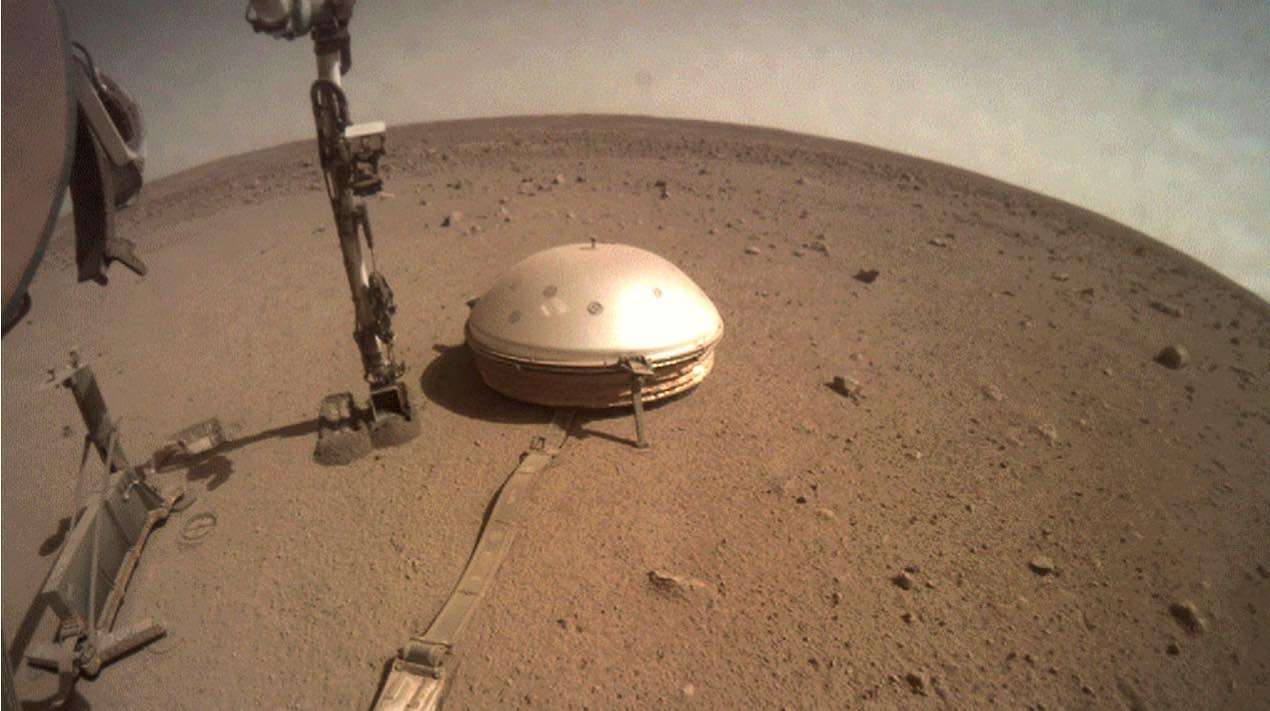Otherworldly Scenes Show Plants Breathing in Close-Up Detail: A Long Sought Discovery
Scientists have discovered the molecular triggers for plants opening their "mouths" to breathe, and caught it on film.

Twitter was the scene of a fond farewell from NASA's InSight Mars lander as recent communications disruptions lead to an official end to the mission.
The dusty robotic fellow had Twitter users tearing up at goodbye, with one commenter noting, tears in his eyes, the absurdity of crying over a robot.
"My power's really low, so this may be the last image I can send," NASA said. "Don't worry about me though: my time here has been both productive and serene."
The Mars InSight lander touched down on the Red Planet in 2018 and proceeded to collect fascinating data that filled in critical gaps in the understanding of Mars' story.
My power’s really low, so this may be the last image I can send. Don’t worry about me though: my time here has been both productive and serene. If I can keep talking to my mission team, I will – but I’ll be signing off here soon. Thanks for staying with me. pic.twitter.com/wkYKww15kQ
— NASA InSight (@NASAInSight) December 19, 2022
My power's really low, so this may be the last image I can send. Don't worry about me though: my time here has been both productive and serene. If I can keep talking to my mission team, I will – but I'll be signing off here soon. Thanks for staying with me. pic.twitter.com/wkYKww15kQ
The lander featured a self-hammering spike – nicknamed "the mole" – that was intended to dig 16 feet (5 meters) down, trailing a sensor-laden tether that would measure heat within the planet, enabling scientists to calculate how much energy was left over from Mars' formation.
Its highly sensitive seismometer, along with daily monitoring performed by the French space agency, and the Marsquake Service managed by ETH Zurich, detected 1,319 marsquakes, including quakes caused by meteoroid impacts, the largest of which unearthed boulder-size chunks of ice late last year.
"We've thought of InSight as our friend and colleague on Mars for the past four years, so it's hard to say goodbye," said Bruce Banerdt of JPL, the mission's principal investigator. "But it has earned its richly deserved retirement."
Three papers last year published on the InSight data revealed that scientists had produced a sort of mid-resolution image of the core, mantle, and crust of the planet, confirming certain similarities to Earth, including that Mars has a molten core—another way of saying the planet is still alive in a sense.
"Even if it's only a robot, it's an honorary member of humanity," tweeted English Women's Football Team head coach Emma Hayes. "I would argue that it's symbolic of humanity itself."
Another commenter made it more succinctly, saying the tears were coming "maybe because the robots are made from and carry with them the hopes & dreams of humanity, our curiosity and wonder? This makes them avatars of some of our best collective qualities."
WATCH a NASA Tribute from 7 months ago…
SHARE The Tearful End Of This Scientific Mission With Your Friends…
Be the first to comment